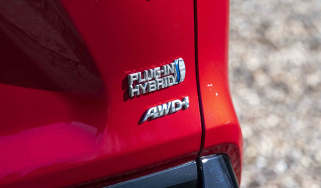Used car price guides: how to price a car
Used car price guides can help you value your car correctly when time comes to sell

Setting the right price is rarely straightforward when it comes time to sell your car. You have a wide range of variables to weigh up, including age, mileage, condition and fuel type to name a few. The same goes if you’re buying a used car and want to make sure you’re not overpaying, but used car price guides can be a great place to start.
Used car price guides can give you an accurate valuation of a car using the latest market data. But it’s not quite as simple as just listing your car for this value – you’ll need to consider the condition and history of your car compared to the rest of the market. The value of your car will also depend on where you choose to sell it – you’re unlikely to get the same price from a dealer as you would from a private buyer.
It’s worth remembering that there are other ways to value your car, too. You can use an online classified car ad site for free – simply search for similar cars to yours to get a sense of its value. Alternatively, our sister site Auto Express offers a free car valuation tool which can provide an up-to-date figure in minutes. If you’re happy with the figure, you can even sell your car through Auto Express, too.
What is a used car price guide?
A used car price guide is a tool that provides an estimate of the value of your car. You can use one to determine how much to sell your car for, or alternatively, how much you should be paying for a used car. We have other top tips for buying a used car that will help you pay a fair price.
Used car price guides are used by dealers and traders to value their stock, but they can be used by private sellers, too. There are several used-car price guides you can refer to for pricing information – the most famous are Glass’s and CAP. These are favoured by the motor trade, although there are plenty of others available online.
How do I use a used car price guide?
You can find a used car price guide with a quick online search. Once you’ve provided some details about your car, you’ll find there are four guide values.
- Dealer price – The price of the car at a dealer.
- Private sale – The price of the car when offered by a private seller.
- Part-exchange value – What a dealer will offer you for your car if you want to trade it in against one they’re selling.
- The trade price – This is usually split into three categories with names like poor, average, and clean. Essentially giving a different value depending on the condition of the car. This is what traders use to value cars they buy for stock.
Remember, these are just guide prices and open to interpretation. They’re no reliable indicator of condition, either, so if you’re serious, have the car’s history checked and if it stacks up, have the vehicle inspected.
How to get a free valuation
You don’t have to pay for a valuation. Instead, check the classifieds to see what a similar car to yours is being advertised for. Some sites will value your car for free in return for personal information (name and email address, for example), which you may or may not be happy to provide.
Some classified sites will suggest an asking price for your car if you intend to sell it. It’s all useful data that can help inform your selling price.
When pricing your car, remember that some sites set price bands for people to search. This means that if you set your price just above £6,000 for example, it won’t be seen by anyone looking in the ‘up to £6,000’ bracket, but will be among the first to be seen by those looking at spending £6,000 and more.
How to price an older car
Most price guides don’t give valuations for cars older than 10 years. It’s not surprising, since cars of that age can vary so much in mileage and condition that any guidance can only be very general.
Buyers of older cars are usually either looking for a particular car that interests them, or they’re in need of a suitable vehicle without a high price tag. Older cars tend to be viewed with different considerations than newer vehicles, with lower expectations that the car is reliable and in good working order. Buyers of older cars may be more concerned about service history, repairs to known faults, and overall condition than whether it is fitted with a particular optional extra or painted a certain colour.
You can get an up-to-date valuation of your car through our sister site Auto Express
Money-saving tips when buying a car
Recommended

Petrol and diesel car ban relaxed with hybrids permitted beyond 2030

Classic car tax exemption: which historic vehicles qualify?

Car warranties: guide to new and used car warranties
Most Popular

Omoda E5 targets rivals: now with zero deposit and APR

Polestar 3 review – upmarket and well-built SUV contender
Tips & advice

Car dashboard warning lights: what does each symbol mean?

Electric car charging stations: public networks, charger types, apps and maps







